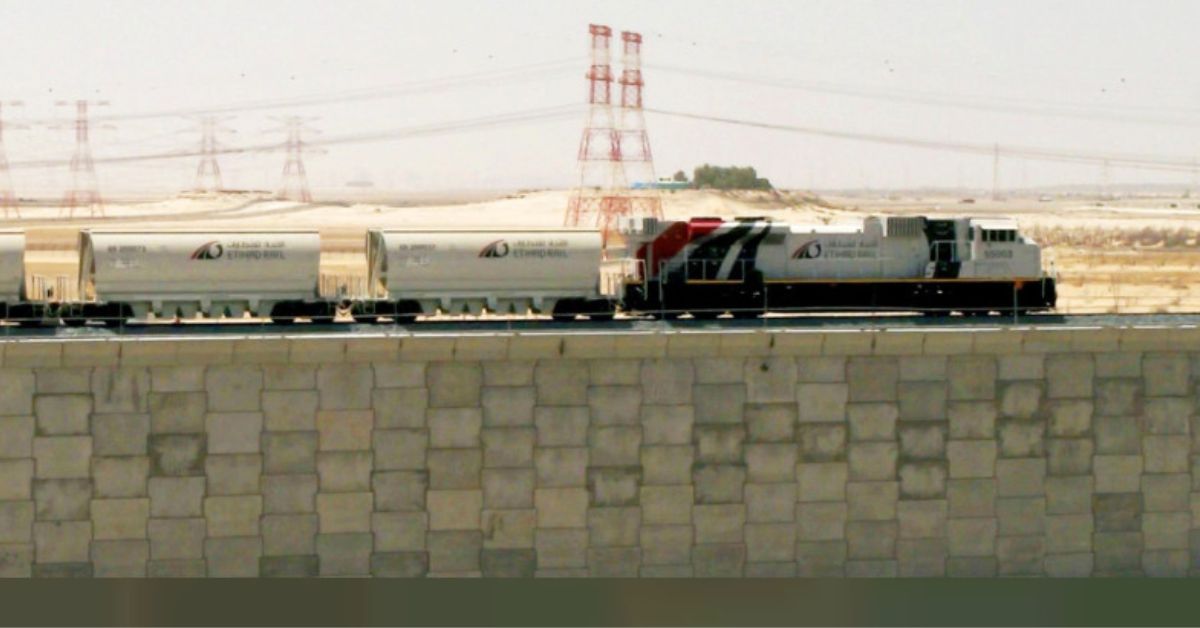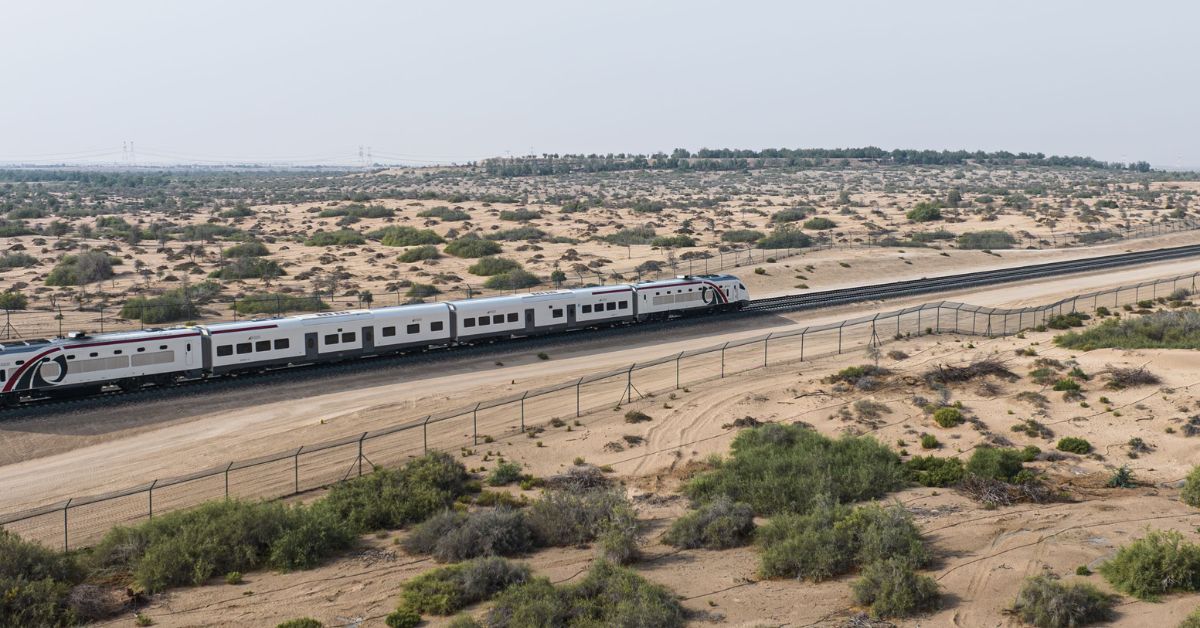DUBAI, UAE — For many years, the Gulf Railway has been a long-awaited dream for residents of the GCC countries. It has undergone a lengthy journey leading up to the much-anticipated date when one of the most prominent joint Gulf projects draws near.
After a 13-year wait, the GCC countries’ Ministers of Transport and Communications announced the timetable for the founding phase of the Gulf Railway Authority, with hopes of completion by the targeted year of 2030.
The Gulf Railway Project is an integrated regional initiative designed to meet the transportation needs of the GCC countries. It aims to connect all Gulf countries and provide an additional option for travelers and goods transport, complementing air and sea transportation.
Date set for 2030
The project entails a railway track equipped with diesel-powered locomotives and wagons for transporting passengers and goods across the six GCC countries. The total length of the route is estimated to be approximately 2,117 kilometers, stretching from Kuwait City to Muscat, the capital of Oman.
At A Glance Long-Awaited Gulf Railway Project Nearing Completion: Set for 2030, the Gulf Railway is a dream come true for GCC residents after a 13-year wait. Ambitious Regional Connectivity Initiative: Spanning 2,117 kilometers, the railway will link Kuwait City to Muscat, enhancing travel and trade across the GCC. Significant Investment in Infrastructure: The project, costing approximately $15.4 billion, features diesel-powered locomotives and wagons. Enhancing Regional Integration: Secretary-General of the GCC, Jassim Al-Budaiwi, describes the project as a major step in Gulf interconnection and integration. Supporting Economic Growth: The railway is expected to boost intra-trade exchange and facilitate movement, contributing to the GCC's economic integration. National Developments Align with Gulf Railway: Saudi Arabia expands its network; the UAE, Qatar, Oman, and Kuwait advance their railway infrastructures. Anticipated High-Speed Rail Between Kuwait and Saudi Arabia: Joint agreement expected to further enhance connectivity between the two countries.
Passenger trains are expected to travel at speeds of approximately 220 kilometers per hour, while freight trains will operate at about 120 kilometers per hour. The project is estimated to cost roughly $15.4 billion.
After years of discussions and planning, the Gulf Ministers of Transport agreed to implement and operate the joint railway project by December 2030. At their meeting in Muscat on November 15, 2023, they also approved the 2024 budget for the Gulf Railway Authority, along with administrative, financial, accounting, procurement, and storage regulations.
International reports suggest that the Gulf Railway will significantly enhance regional connectivity, shortening travel times and costs between major Gulf cities and ports, boosting trade, and attracting investment.
Route of the project
The idea for this project dates back to 2003 when Gulf state leaders tasked the Committee of Ministers of Transport with conducting an economic feasibility study for the joint railway project, known as the “Gulf Train.”
The findings of the study, announced at the Gulf Summit in 2009, indicated the project’s economic feasibility, leading the GCC leaders to advance to the stage of preparing detailed engineering designs.
In 2013, the project’s member states agreed on a work plan and timetable to complete these designs, with construction phases initially set to begin in 2014. However, the launch was later postponed to 2021. The first phase of the project will connect the UAE, Saudi Arabia, and Oman, while the second phase will link Bahrain, Saudi Arabia, and Kuwait.
The train route is expected to reach Doha via Salwa port from Dammam, Saudi Arabia. Additionally, it will connect Qatar to Bahrain via the planned Qatar-Bahrain Bridge.
Improving integration
The Secretary-General of the GCC, Jassim Al-Budaiwi, emphasized the ongoing efforts to complete this monumental project. During a press conference at the Middle East Railway Exhibition and Conference in Abu Dhabi, Al-Budaiwi described the project as a “qualitative leap in joint Gulf interconnection and integration.”
He further stated, “The GCC leaders are committed to supporting joint Gulf action to enhance cooperation and achieve the desired integration across all fields.” Al-Budaiwi added that the GCC countries have taken deliberate steps to coordinate and unify policies and strategies, forming a collective action framework that aligns with the Gulf people’s ambitions and aspirations.
He also highlighted the strategic integration projects completed by the GCC nations and the ongoing efforts to finalize the railway project, citing its direct positive impact on intra-trade exchange and freedom of movement for citizens and residents.
He further emphasized that the Gulf link will “support joint investments between GCC countries, contributing to enhanced Gulf economic integration and its impact on the global economy.”

Transitions between countries
Saudi Arabia, boasting the Gulf’s largest railway network, continues to expand its infrastructure. The most recent development was the opening of a train station near the Jordanian border in March.
The UAE is progressing with the second phase of its national railway project, launched in 2016. This phase is expected to connect 11 cities. In Qatar, the Doha Metro, which opened three years ago and passes through 37 stations, along with the first line of the Lusail Tram connecting 25 stations upon completion, has significantly bolstered the infrastructure. This expansion was particularly vital ahead of the World Cup held late last year.
Oman is planning to construct its national railway network, spanning approximately 2,100 kilometers. This network will start at the UAE border, pass through Sohar and Muscat in the north, and connect to the major port cities of Duqm and Salalah on the eastern coast.
In January 2020, Kuwait announced plans to build a railway line with 68 stations, aiming to link Kuwait City with the country’s international airport, the main university, and various residential and industrial areas.
Additionally, informed sources cited by the Kuwaiti newspaper Al-Qabas expect a joint agreement between Kuwait and Saudi Arabia to commence practical steps for their high-speed train project. The sources also stated that the advisory study for the project would take six months to prepare, paving the way for the railway connection between Kuwait and Riyadh.

